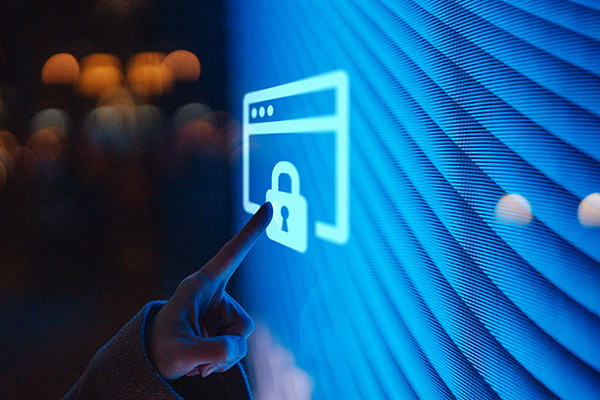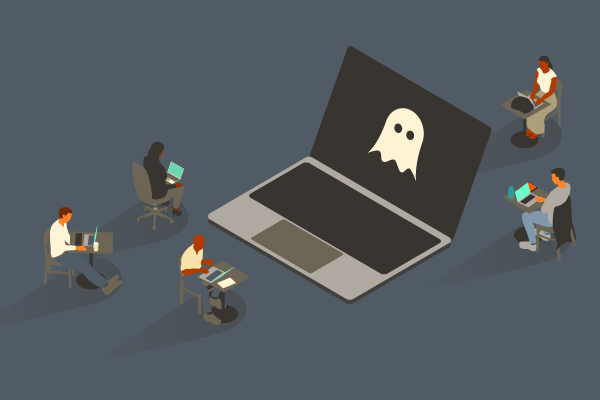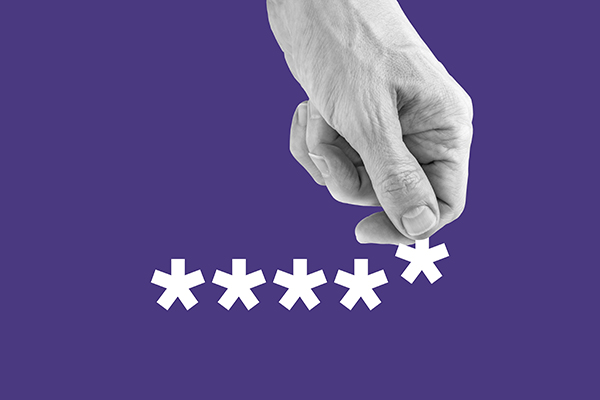5 Ways to Build a Culture of Cybersecurity

Article Highlights:
- Choosing the right security software is crucial to protect your business.
- Regular employee training is key to defending against cyber threats.
The FBI reported that cybercrime accounted for $2.7 billion in losses in the U.S. in 2018. In just five years, that number skyrocketed by 463%, reaching a staggering $12.5 billion lost to cybercrime in 2023 alone. It’s more crucial than ever to invest in the security of your business and its data. Protecting your dealership from cyberattacks starts with top-of-the-line security software. But it requires much more; it requires building a top-down culture of cybersecurity that prioritizes the protection of your business and its customers’ data from the hands of malicious cybercriminals.
Building a culture of cybersecurity involves five key components:
1. Investment in Security Software
Security software is the easiest place to start. Having the right firewall and endpoint detection and response software in place to keep potential attackers out of your system are extremely important. The right security software monitors your network, detects and responds to threats, and ensures you are aware of potential vulnerabilities before an attack occurs. Security software acts as the first line of defense to protect you from potential attacks, and it’s crucial but can’t be the end of the conversation.
2. Password Policies
The average person has around 255 accounts requiring a password, including both personal and professional accounts. Cybersecurity experts recommend that each password is unique to avoid the possibility of one compromised password allowing attackers to access multiple accounts. While it’s likely impossible to remember that many separate passwords, having your employees change their passwords to new and unique ones every 90 days or less will significantly increase the security of your system.
In addition to password changes, you can enroll in multi-factor authentication (MFA), which requires an additional method of identification, such as a phone or email, to provide a time-sensitive code before granting access to the account. Implementing approved password managers can also help employees manage their passwords securely and efficiently.
3. Training and Education
Research shows that 91% of cyberattacks start in an email inbox. This means that human decision-making is both the greatest liability and the strongest defense against cyberattacks. To shore up this last line of defense, you need to provide your employees with ongoing, high-quality training and education. Cybercriminals have an ever-expanding repertoire of malicious weapons, and your training needs to adapt to keep your system, and its data protected. Regular phishing simulations and interactive training sessions can help employees recognize and respond to threats effectively. Additionally, creating a culture where employees feel comfortable reporting suspicious activities without fear of reprimand is essential for maintaining a secure environment.
4. Communication
Communication is another vital point of emphasis for a strong cybersecurity posture. If your employees notice a suspicious email, they can notify your IT staff and warn others about the potential threat. This is crucial because the goal of many phishing attempts is to catch the reader off-guard and pressure them to act quickly and click a malicious link. Establishing clear protocols for reporting and responding to potential threats can streamline communication and ensure swift action. Regular updates from the IT department about new threats and best practices can keep cybersecurity top of mind for all employees.
5. Partnerships
It is extremely important to know where your data is going and how it is protected when in the hands of a third party. If you spend time and money to protect your data but choose partners who do not put the same effort into protecting your data from cyberattacks, you are still at risk.
You need to choose partners who take cybersecurity seriously and have proven that your data will be safe during every step of the process.
Conducting thorough due diligence and regular audits of your partners’ security practices can help ensure they meet your standards. Additionally, establishing clear contractual obligations regarding data protection can provide an extra layer of security and accountability.
Building a robust culture of cybersecurity is about more than just technology; it’s about creating an environment where everyone feels responsible for protecting sensitive information and your dealership’s systems. Think of it as a team effort where every member plays a crucial role. By staying vigilant and informed, you can keep your defenses strong and your business safe. Cybersecurity is a continuous journey, not a one-time effort. We all need to be proactive in fighting the rise of cybercriminals.
Related Articles:

Avoid Cybersecurity Nightmares this Spooky Season
Seemingly unpopular opinion: I am not a scary movie fan. My rationale – and excuse – for avoiding scary movies has always been that I…

Lock It Down: Mastering Strong Password Management
Keeping your passwords strong and secure is key to locking down your dealership’s digital assets. Thankfully, there are steps you and your dealership can take…

Is your dealership prepared for storm season?
Storm season brings expected and unexpected disasters. Dealerships need to have a plan in place to help them recover if Mother Nature attacks. According to…

Who is your cyber nemesis?
It seems like every week there’s a new foe to your cybersecurity. In 2023, over 72 percent of businesses worldwide were affected by ransomware attacks.…















